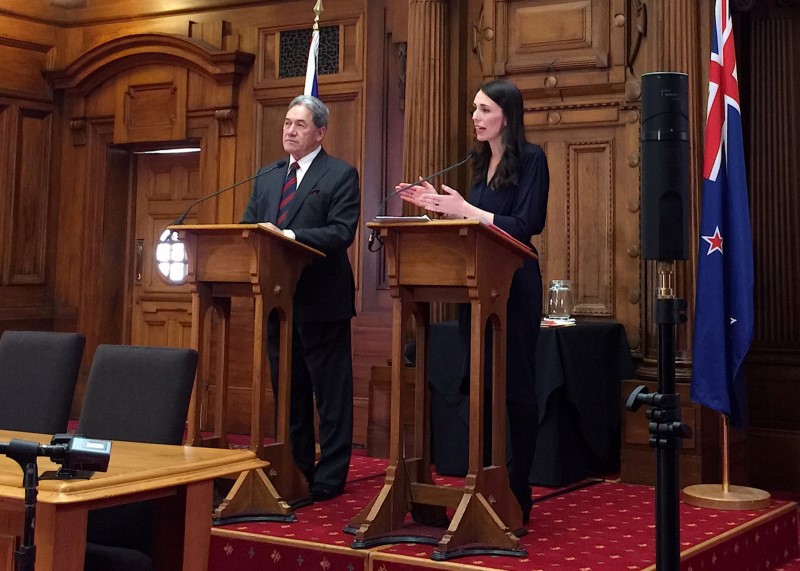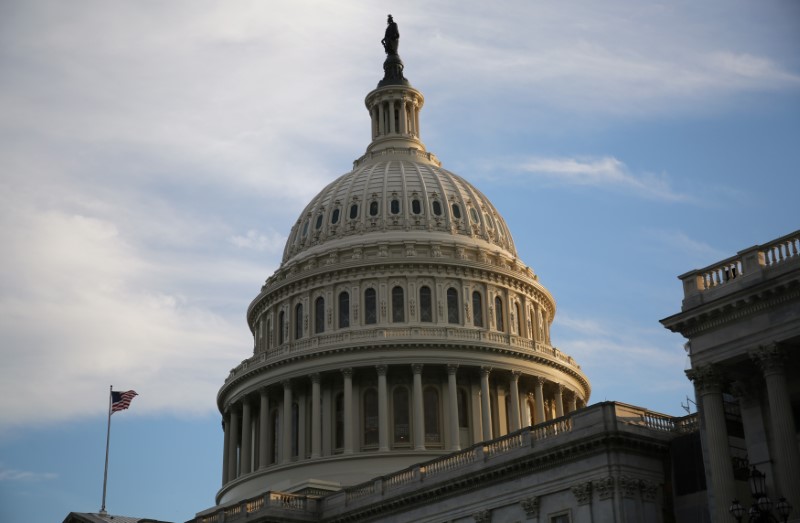
New Zealand’s Prime Minister-designate Jacinda Ardern speaks as she stands next to New Zealand First party leader Winston Peters after their meeting in Wellington, New Zealand, October 24, 2017. REUTERS/Nicolaci da Costa
October 25, 2017
By Jonathan Barrett and Ana Nicolaci da Costa
WELLINGTON (Reuters) – Veteran protectionist politician Winston Peters was appointed New Zealand’s new deputy prime minister and foreign minister on Wednesday, saying he would seek a greater voice in international affairs, including North Korea.
Peters is among a handful of Western politicians to have visited North Korea when he was foreign minister in a previous New Zealand government in 2005.
New Zealand First party leader Peters delivered government to the Labour party through a coalition deal after a closely fought election on Sept. 23 failed to result in a majority for the governing National or Labour parties.
Peters and Labour Prime Minister-designate Jacinda Ardern have found common ground in “fortress New Zealand”-type of policies, but trade and foreign ownership restrictions could hurt New Zealand’s reputation as an open economy and antagonize the likes of China.
Trade between the two countries has grown to more than NZ$20 billion ($14.4 billion) a year and Chinese President Xi Jinping called the relationship “unprecedented” in its depth.
While Peters was expected to be offered the deputy role after obtaining the balance of power, his appointment as both deputy prime minister and foreign minister was unexpected.
Richard Shaw, politics professor at Massey University, said Peters was a “conservative economic nationalist”.
“One of the things we’ve seen from him over the last couple of weeks is the concern with the extent that relatively unbridled free trade has on his constituents,” said Shaw.
Many of Labour and New Zealand First’s policies during the campaign drew on voter concerns that immigration and foreign buyers of local homes were putting too much pressure on infrastructure and house prices.
Peters said he wanted to forge stronger ties with Australia, where tensions have increased recently.
Labour’s finance spokesman Grant Robertson will become finance minister in the incoming government, placing him at the center of plans to overhaul monetary policy.
Robertson, a political adviser under former Labour Prime Minister Helen Clark, will appoint a new central bank governor.
The Labour-led government plans to reform the Reserve Bank Act to possibly include employment, alongside inflation, as a dual target.
Rather than just focusing on inflation, Labour wants the Reserve Bank to have a full employment goal when devising policy settings, bringing it into line with the United States and Australia.
(Reporting by Jonathan Barrett and Ana Nicolaci da Costa; Editing by Edwina Gibbs and Sonali Paul)

